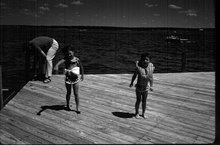
Sitting on the back deck in silence at dusk, I am watched warily by the wrens who have come back again this year to build their nest above the ceiling fan. They hover nearby, but when I lower my eyes they dash furtively to the nest and out again. If I stay long enough, or lie down and close my eyes, they will begin to ignore me, but right now they are still suspicious.
Male and female wrens work together in nest building They sing different parts of the same song, usually interweaving their songs such that they sound like a single bird singing.
“The concept of maternity,” writes Bedichek. “thus daily enriched, sinks in and becomes a part of the developing child and affects his thoughts and emotions deeply for all time. Bergson comments with a striking figure of speech on the significance of maternal love. He conceives of all life as motion which possesses the consciousness most convincing as the operation of maternal love is observed in nature. ‘It shows each generation,’ he says, ‘leaning over the generation that shall follow. It allows us a glimpse of the fact that the living being is above all a thoroughfare, and that the essence of life is in the movement that is transmitted.’”
There was champagne, and brioche, and then the discussion of the sons, and then the invitation to the sons (sent via cell phone) to join us at brunch. They arrived, they ate little, and we asked the questions that had to be asked and expressed our concern. Who were we to them at that moment, I do not know. As strange of beings as they are now to us, impossible to hold, we must seem to them, something antiquated, something outdated, like so many Routes 66. The living being, as Bergson says, is, after all, but a thoroughfare. I was a road through which he travelled to ultimately arrive where he will arrive. Where that is, I cannot know.




